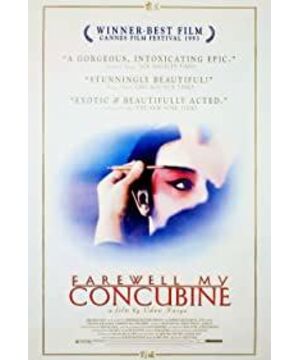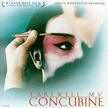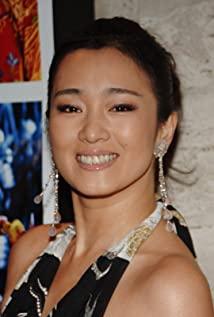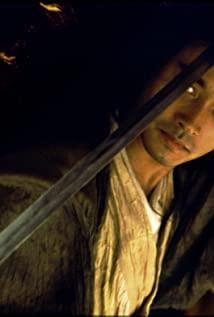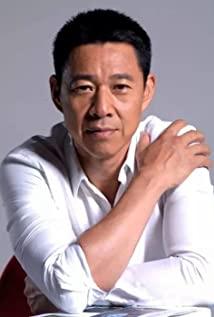Since the mid-1980s, "history" has become a haunting nightmare in mainland art films. It seems to be a dizzying deep valley that must be faced, and a crimson and rich sky that seems to be haunted by ghosts. Compared with the discourse about reality, the narrative of history is always full and dignified, full of delicate layers and infinitely complex emotions. However, in the narratives of 1980s films, history is not an identifiable chronology, a linear segment of time. In fact, starting from the May Fourth tradition, the authenticity of history has been shown as a "history book" with "no era" and the word "cannibalism" written vertically and horizontally. Officially, some kind of veiled, blocked "people's memory", some sort of "winner's list". Therefore, in the history writing of the 1980s, the history of China is not a process linked to a time chain, but a space superimposed on each other in endless cycles and wheels, an "iron house that is impossible to destroy." ”, or a yellow land that has survived calamities. Thus, history has become an ancient stage in slow decay and decay, while years, events and lives have become repertoires and hurried, indistinguishable passers-by. In the film narrative of the 1980s, it was this ancient stage, not the repertoire and passers-by, that captured the gaze of the narrator. A painful infatuation, a spell-like mission.
In fact, in the mid-to-late 1980s, buried in a similar historical narrative was a memory of the era that was too real: a paragraph that refused to be framed by official accounts, and was therefore afraid to reveal it as a language The memory of , is an all too clear assertion about reality: this cyclical decaying history must be brought to an end, and China must join the human/Western linear historical process at this repeatedly delayed opportunity. This unequivocal assertion of reality shines brilliantly with reason and the spirit of enlightenment; however, it does not act simply or decisively. In the social context of the 1980s, as the last retrospective vision before the arrival of the hurricane of civilization, the infinite lowness was intertwined with the deep resentment and attachment to the old China. It seems that they must declare with ecstasy that this ancient stage is collapsing and sinking into the bright horizon at the turn of the century; however, at the same time, they will lose all the Chinese, still oriental, drama they have performed on this stage Life. Therefore, in 1984, in the film "aesthetic revolution" of the mainland film industry launched by the fifth generation, in the typical language form of the fifth generation: the victory of space over time, there are such diverse discourses, so complicated emotion 2. However, what the fifth generation did not expect was that when they banished the lie/age in the historical narrative, they also banished the story, the possibility of the plot and the expression of the individual life experience of the characters; perhaps more serious Yes, they simultaneously banished the incision that embedded the Chinese/Oriental historical landscape into the World/Western historical picture. A spatialized, splendid and stagnant oriental landscape can only be the linear historical horizon of the West, an unembedded piece of the open plot; and the fifth generation tried to make it in the social context of the 1980s The operation is precisely the dialogue and connection between China and the world, the East and the West.
If it is said that in "Red Sorghum", in the viewpoint lens of "My Grandpa", the Japanese aggressor's motorcade was introduced, and a real era was identified: 1937, so as to play the story and the hero, once and for all. The cultural predicament of the historical narrative of five generations; if in 1987, "Red Sorghum" won the championship in Berlin and "Kid King" lost in Cannes, a revelation of the identification and reading of Eastern and Western cultures was achieved; then, in 1993, it finally won the The Palme d'Or's Farewell My Concubine has become a more meaningful example of the cultural proposition of history and narrative. In fact, as one of the founders of the film language form of the fifth generation of "the victory of space over time", from the grandeur of "Yellow Earth", the defeat of "Kid King", and the miscellaneous stories of "Singing While Changing" , to the complete victory of "Farewell My Concubine", Chen Kaige experienced a period of pain and humiliation, a period of social mission in China and Western cultural appeal, historical truth and age/lie, in the allegorical historical landscape and Between the presentation of the plot/character fate, Chen Kaige once tried a desperate struggle and breakthrough. Finally, in "Farewell My Concubine", Chen Kaige was rescued due to his fall, and finally crowned due to his submission.
Under the multiple cultural squeeze in the 1990s, in the depths of the noisy and lonely vortex of culture/business/market, in the blockage of historical aphasia caused by specific real politics, Hong Kong best-selling author Li Bihua's novel provides Chen Kaige with a wading, perhaps rather drifting piece of driftwood. Relying on Li Bihua's story, Chen Kaige unwillingly solidified his complicated feelings about Chinese history and his bitter love for the seemingly sinking and imaginary Chinese cultural noumenon into a form of fetishism7. It is no longer a metaphor for the stage/spatialization of history, but the appearance of the stage of Peking Opera, a "magnificent and inexplicable" 8 oriental landscape, and a quiet and lonely between the roar of gongs and drums and the splendid splendor; no longer It is the endless and desperate situation of dancing around death and killing children, but the obsession with a long historical drama - "Farewell My Concubine", the sadness and legend of a hero at the end of the road, a love and righteousness, a brave man and A stubborn woman. A mirror image of ancient China, a mirror image that has been completed by the staunch sacrifice of love and the brave death, an old Chinese life admonition, "the principle of being a man": "Man must fulfill himself by himself" 3 and The original work, "With the old and confused joy, the story of the family that was filmed and published" 4, recalls the fifth generation's life story and time chain that was lost in the maze of history. Accompanied by the reappearance of a drama dream life, the age-a recognizable history, a history that Chen Kaige can't stop, clearly emerges from the vast space. The stage, as a fetishized historical space, "Farewell My Concubine" as a constant play has become the punctuation and metronome in this long historical story. In fact, in the story of the film "Farewell My Concubine", this real and clear segment of the chronicle of modern and contemporary China is just a scene in which a cruel and tragic life can be played. The dispelling or reconstruction of this kind of power discourse is just an incomprehensible index of Ximeng's life, and it is just an excuse-like reference to structure the grievances and grievances between characters. This piece of modern and contemporary Chinese history, which is deeply painful to Chen Kaige and his contemporaries, is just a scene-like setting off a desperate "love triangle" - the appearance of a classic melodrama; The historical moments that carry the heavy memory of the Chinese are only used as a background screening to provide an opportunity and stage for the revealing of the true feelings and emotional blackmail between the characters, adding the sadness of the troubled times and the bitterness of fate to the heartbroken time of the characters. For example, when the Japanese invaders drove their horses into Beijing, it was only the background of Cheng Dieyi's gift of a saber. The invaders' horse team successfully blocked Duan Xiaolou's footsteps from chasing Cheng Dieyi, and Juxian was able to take advantage of this. Facing the ecstatic waist drum team and the team of commoner soldiers Fengchen Pupu, Chen Kaige arranged the reunion of Xiaolou, Dieyi and Eunuch Zhang. The two sat next to Eunuch Zhang, and in the audience seat for a stone stair, they witnessed this critical moment in Chinese history. The wisps of smoke obscured the depth of the picture, presenting the three-person panorama as a flat picture; as if at this moment of historical change, the old history not only lost its possibility of extension forever, but also Squeezed into an extremely thin and flat page: the once-prominent father-in-law and the eternal "player" have now been thrown out of the orbit of new history together, becoming a worthless embellishment between the old history. Therefore, the spatialized historical image/stage, and the historical inertia carried by the repertoire of "Farewell My Concubine" and the fixed appearance and age/presented in the chronicle, spanning the old China and the new world's life story They are juxtaposed in the narrative structure of the film; while the political and power discourses referred to by the "era", the overloaded memory implied by the political scene and the "love deep in the mud" Appearing in the film. The binomial antagonisms, which are opposed to each other and absent from each other as a specific ideological magic circle, dissolve each other in the juxtaposition. This double juxtaposition also successfully resolved the cultural dilemma encountered by the fifth generation of mainland film circles represented by Chen Kaige; after Zhang Yimou, "Farewell My Concubine" once again informed in the double resolution achieved by this double juxtaposition It marked the sinking and end of cultural heroism in the 1980s and the fifth generation. In the stitching of the double success, Chen Kaige's historical accusation and historical reflection cultural standpoint that he had been unable to control, once enchanted Chen Kaige and his contemporaries' sense of real political mission, then melted in this double dissolution into a tragic and joyous one. in the story. The stage is no longer loaded with the complex emotions of hatred, resentment, and obsession with the old Chinese death ring dance; 1937, 1949, and 1966 are no longer referred to as memories soaked in blood, tears, and stains. Just like the fluttering and splendid costumes, all of these are just fragments of many Chinese/Oriental representations, linking up an oriental landscape from the point of view of Western authority, a strange and gorgeous, cool and moving Orient. When spatialized history/historical authenticity and temporalized history/political and power discourse dissolve into each other in juxtaposition, they lose their specific, Chinese cultural contextual reference and become " Empty signifiers", and jointly construct a "mythical code" from a Western perspective: China. Everything presented in the film refers to China too clearly, but it does not extend to the history of China—truth or lies, and it no longer refers to the reality of China.
2' Men, Women and Life Stories
The spring and autumn in the film are obviously structured in a series of overlapping love triangles: Duan Xiaolou/Cheng Dieyi/Juxian, Duan Xiaolou/Cheng Dieyi/Yuan Siye; even Eunuch Zhang/Cheng Dieyi / Duan Xiaolou, Duan Xiaolou / Cheng Dieyi / Xiaosi. In order to achieve the image of this Oriental Mirror City, Chen Kaige rewrote the abnormal love in Li Bihua's story into a double mirror-image love. It is no longer "a man's deep-seated love for another man"6, and it is no longer Cheng Dieyi's bitter love for Duan Xiaolou; and Yu Ji, but Cheng Dieyi, who is "the rebirth of Yu Ji", has a crush on Chu. Overlord's Loyalty. And Cheng Dieyi's obsession with Duan Xiaolou is just an extension of the stage towards reality ("You can't live without being crazy" - Duan Xiaolou's words), it is the teaching of Yu Ji's Zhenlie and her master: "from one to the end" Perseverance and practice. In fact, it is the deep mirror-image love for Bawang, not the infatuation with dramatic art as revealed by the superficial structure of the narrative, that becomes the basis for Dieyi's entire behavior. As early as Xiaodouzi (Childhood Dieyi) resisted and ran away and met a famous character in a play, what appeared in Xiaodouzi's point of view was not only the magnificent and inexplicable stage career, or the beautiful and graceful image of Yu Ji; A specific mirror image: The overlord who is brave and gorgeous, and the flag flying on his back. Therefore, the important scenes between Cheng Dieyi and Duan Xiaolou are all presented between Yu Ji and Bawang when the two of them make their debut. And the overlapping love triangle situations also frequently appeared when Dieyi Yuji was dressed up, at least not yet undressed - whether it was raped by Zhang Gonggong, Yuan Siye intervened, Juxian defected, conflict with the wounded soldiers of the Kuomintang, Peking Opera reform , or even a Cultural Revolution scene. When the two broke apart, Cheng Dieyi starred alone in "The Drunken Concubine", "The Peony Pavilion", and "Pick up the Jade Bracelet" - a woman who treats the king hard, or is tired of thinking about spring. Cheng Dieyi's surrender and "disobedience" to Yuan Siye always happened after the latter pretended to be an overlord. This is the scattered and overlapping phantoms in the mirror city, a scene of love between shadows. As an echo of a queer that is too clear, Chen Kaige structured the earthly marriage between Juxian and Duan Xiaolou as another shadow love. It was a rendition of "Huang Tianba and a prostitute" (Cheng Dieyi's language), a classic secular myth of a hot-blooded man and a woman with true feelings. Therefore, in the two most important scenes of Juxian and Duan Xiaolou: the wedding room Huazhuye and Juxian after the miscarriage and loss of their child, Duan Xiaolou is presented as a picture in the dressing mirror beside the bed in the classic double medium scene. mirror image. Just like Cheng Dieyi, Juxian has never been able to really get or keep Duan Xiaolou; or more precisely, Juxian has never been able to be a "dignified wife" and get what she dreamed of from Duan Xiaolou. An ordinary but grandiose "name" or an effective manly asylum. She is always being Dieyi, the master, and finally Duan Xiaolou himself identified a "girl full of flowers", a prostitute who was not ashamed of the society. She will die with the mirror in her arms: after Juxian finally identifies her husband Duan Xiaolou as a prostitute, she hangs herself in a bright red wedding dress before her "dignified" wedding bed.
The most interesting thing is that it is different from the original - it is no longer a woman caught in the abnormal love of two men; the double mirror love structure rewrites this story as a love triangle between "two women" and a man. In the original work, this is an obvious homosexual story; in the film, Cheng Dieyi is in a situation of third-degree violent castration (cut off by her mother, her mouth is full of blood by Duan Xiaolou (the master in the original work). , raped Eunuch Zhang), she reassured herself, and even ecstatically recognized her identity as a "woman": "I was originally a female Jiao'e, not a man...". It is in this love triangle between "two women" and a man that Chen Kaige is able to structure his historical narrative. It is these "two women", not men, who are the adherents and practitioners of the historical power discourse: Cheng Dieyi's stubbornness is "from one to the end", and what Juxian pursues is that the husband sings with the wife, and the poor and lowly do not change. "They" are all playing the ideal women defined by the historical power order and gender order, so they are always outside the historical process. Cheng Dieyi will always sing, dance, and play the role of Concubine Yu, Concubine Yang, and Liniang Du in front of any audience in any era; in front of the Japanese army, on the blackout and dark stage, and among the anti-Japanese leaflets falling like snowflakes; If the wounded soldiers of the Kuomintang did not enter the stage, and if the Peking Opera reform did not deprive him of his right to act, he would undoubtedly dance and sing, "I don't know if there is a Han Dynasty, no matter the Wei and Jin Dynasties." And Juxian is like any woman in a good family, her supreme ideal is to keep a family and a man in peace, and live an ordinary and warm life. Only Duan Xiaolou is alone in the real and brutal historical process. The interesting thing is that Chen Kaige treated the behavior of the "two women" as acting. If it is said that Cheng Dieyi's performance is more from violent castration and artistic and mirror madness; then, Juxian's performance is more from the sophistication and cunning of women. As a "woman", she is far more familiar with women's art than Cheng Dieyi. She squatted on the seeds, watched Duan Xiaolou's performance with admiration but not devoted attention, and retreated when "Ji Yu" appeared, followed by a scene where she redeemed herself. She pulled off the hairpin and the bracelet in a performance style, and finally took off a pair of embroidered shoes and placed them lightly on a pile of gold and silver; she responded poignantly and calmly to the cold words of the brothel boss: this is undoubtedly a woman with her own destiny. But that pair of embroidered shoes is not only a prop in this scene, but also a foreshadowing in the next scene. This move enabled her to appear in front of Duan Xiaolou with bare feet, and her redemption also became "expelled". With the image of a lonely and weak person, Duan Xiaolou had no choice but to achieve this tender and chivalrous scene.
However, it is also the endless struggle between these "two women" that has created the suffering of men in history. One of the most typical situations is the blood-covered Xiaolou in chaos, between Juxian, who was aborted, and Dieyi, who was arrested by the police. In one scene, Juxian’s loud shout interrupted Duan Xiaolou’s untimely remarks that she agreed with Cheng Dieyi, and she threw a red umbrella (a cultural code about sheltering the wind and rain) from the stand. Finally, Duan Xiaolou was forced to make some remarks against his intentions. Juxian saves Xiaolou again, but also pushes him on the road of betrayal; she herself will bear the ultimate tragedy for this. Even Xiao Si, who is the presenter of the brutal historical violence in the new era, also has the identity of "Dan Jiao"; and will appear in the disguise of Yu Concubine, placing the overlord between the two desperate choices of Yu concubine; "Farewell to the Overlord". Ji "The true meaning of the play has been tarnished because of this. The more cruel and absurd scene is the scene of the Cultural Revolution, when two "women" who want to protect the same man go crazy, and finally push the man into a situation where he is ruthless and even ashamed of himself.
In fact, Li Bihua's original work is not a "multiple decision" or overloaded article, it is just a story about life, about loyalty and betrayal: the so-called "bitch is ruthless, the actor is unjust." 14 In Chen Kaige's In the film, this theme of loyalty and betrayal is presented as how the "two women" (Dieyi, Juxian) demanded the insatiable loyalty of a man (Duan Xiaolou) to create betrayal; Push the man to complete betrayal. Cheng Dieyi's demanding of "from one to the end" made him lose Duan Xiaolou's love and protection again and again, and "lost his virginity" to Yuan Siye; His loyalty, time and again, tempted him to abandon Cheng Dieyi, the stage, and Master Guan's teachings, making him betray his simple beliefs and abandon human dignity. This road of betrayal will end with his fatal injury to Dieyi and Juxian's betrayal and betrayal. It is this theme of virginity and betrayal that made Chen Kaige write men and women in history for the first time, using individuals (seemingly neutral, but actually men) as the opposite of history. A certain classic cinematic narrative strategy: redeeming and absolving individuals from the destruction of history. In this Bertelucci-esque theme of "the individual is the hostage of history", Chen Kaige successfully dispelled, or betrayed, the ideological (anti-ideological) proposition of the 1980s: we need soul torture," and The whole nation repents together”7. Chen Kaige's identification with Duan Xiaolou's historical experience and fate (Chen Kaige once wanted to play the role of Duan Xiaolou himself), as well as his rewriting of Li Bihua's gay story, undoubtedly conveyed his male-centrism writing style. This method determines the fate and status of only Duan Xiaolou/men in the historical process, and determines that women will always be the bearers of the historical subconscious for their own purposes, and at the same time act as a conspiracy of history. But what is interesting is that Chen Kaige's identification with Duan Xiaolou is only a social identification. On Duan Xiaolou, Chen Kaige projected his thoughts on the politics and historical destiny of China, especially contemporary China, that he could not give up, as well as his betrayal and rewriting of these thoughts; on the contrary, on Cheng Dieyi, Chen Kaige devoted himself to his more personal identification. This recognition is undoubtedly not aimed at the fate of "women", let alone homosexuals, but is based on Cheng Dieyi as an artist who "doesn't survive without madness" and has a transcendental sense of artistic mission; At the same time, perhaps even more profoundly, Cheng Dieyi's image and destiny are exactly the portrayal of the history and cultural destiny of an oriental artist who faces the mirror of western culture: a man, but in the mirror city of history, he sees a female figure. or Perhaps this is the deepest sorrow and cultural fate of a third-world intellectual/artist in the context of post-colonial culture. In the context of world culture, a new structure of power and discourse dictates gender/ethnic narratives and the rules of the game.
One of the most obvious symptoms of the "Farewell My Concubine
" is a stop on the way for Chen Kai's fans. One of the most obvious symptoms is the contradictory position and dilemma of historical violence. In a sense, the film "Farewell My Concubine" has almost become a mysterious palace in which the ghosts of historical violence haunt. This time, Chen Kaige seems to be obsessed with the violent situation of history and regard it as an indispensable landscape in the harmonious and charming landscape of old China. At the same time, it seems difficult to abandon the classic position of the fifth generation and mainland intellectuals: The indictment and reflection of historical violence. Therefore, it seems that the images of the People's Liberation Army entering Beijing and the presence of Cheng Dieyi, Duan Xiaolou and Eunuch Zhang declare that the past history has lost its continuity and has been compressed into a single plane; with the "eternal" Yuan Siye being After the Fa-rectification heralded the occurrence of the historical rupture, Chen Kaige's narrative angle and tone of historical violence were divided into two. It seems that in the harmonious picture of old China, violence/power/order is far more elegant, delicate, and even reasonable, and not as inhuman, naked and hideous as modern China.
Chen Kaige's obsession with the historical violence of old China is concentrated in the image of Master Guan and many scenes of the troupe. In fact, the most successful and fascinating parts of the film are the sequences in the troupe. There is no doubt that Master Guan's troupe has successfully served as a metaphor and reference to the old China/yuan society, and Master Guan is undoubtedly the soul of this big stage and small world, and the strict father in a harmonious "family". The appearance of Master Guan/ideal father image is just another betrayal of Chen Kaige's original cultural intention of the fifth generation. In the 1980s, at the beginning of the fifth generation, its indictment and reflection on historical violence presented a rejection of the father-son order, which the author once called "the art of the son's generation". Even in Chen Kaige's "Walking and Singing" at the beginning of his lost journey, the master and apprentice of "Gods and Gods" are also presented as "sons" who are tossed around under the father-son order and historical violence. The old god spent his whole life: seventy years, thousands of strings, and fulfilling the master's promise, in exchange for only a blank sheet of paper, making him a victim and a victim of historical lies, and at the same time he still tries to continue the chain of history : Pass the lies of history to the stone. In "Farewell My Concubine", in the scene of Master Guan and his troupe, the indictment of the father and son order has completely disappeared; not without blood, but in a harmonious and charming situation. In the meta-social situation of the troupe, Master Guan is undoubtedly an absolute authority, a veritable father figure, and there is no longer a "mother" to soften the situation. He not only taught the children in the troupe their doubts, but also killed them. Unlike the petty and sadistic master in the film, Guan Shifu is undoubtedly an ideal father and a central figure in the charming landscape of old China; at the same time, he is also a master of order and more brutal. executor of violence. Even in the midst of his rage and violence, he was still dignified: the children had to bring the execution bench and hand them the wooden knives, and someone stood by and read the class rules aloud to justify the punishment. It seems that around Master Guan, Chen Kaige is caught in the dilemma of historical violence. Among them, the death of the little leper is quite a typical scene. The little man was undoubtedly a victim of historical violence, and he was obviously frightened by the endless cruel punishment in the troupe. Although he would also burst into tears in front of the "famous actor" stage: "When will I be able to become a star?", but, "How many beatings will I have to take?!" Finally, in Master Guan's fury and unrestrained Before the beating, he swallowed the last candied haws and hung himself. In the dazzling sunlight that shot into the lens, the slender body of the leper swayed pitifully and helplessly in the air. And Master Guan is obviously the culprit of this bloodless murder. However, there was no complaint or protest; In the next scene, Master Guan was more dignified and saddened (not because of the death of the little leper, but because of his "incompetence") standing in front of the class and taught the most important lesson for the children: Regarding the true meaning of "Farewell My Concubine"; from Yu Concubine's calm death, the "principle of being a man" is derived: "from one to the end", "one has to fulfill himself." The example of perfecting oneself" seems to have paid the price of death, but still cannot wash away his "stain" - he cannot be forgiven, but Master Guan and violence have been forgiven unreservedly. It seems that what the sadistic master is proclaiming is the truth: "If you want to be famous, you must be punished by others." Cruel punishment is a kind of "perfect" technique.
Around the harmonious and brutal situation in Master Guan and the troupe, Chen Kaige established the symmetrical characters of Cheng Dieyi and Duan Xiaolou. Xiaoshitou/Duanxiaolou, as the master in the troupe, has always been a tacit and devout collaborator in this landscape. This is not only manifested in his devotion and loyalty: he "clumps the bricks" on his head to help the master, study hard and practice hard; it is more manifested in that he is well versed in the "rules of the game", and is competent or even happy to cooperate with it. . He is always "joyfully" taking torture tools for the reasonable or unreasonable punishment of his master, jokingly shouting pain and shouting for his master, and being punished by kneeling again and again in the harsh winter snow, Treat it as a matter of course. Compared with Xiao Shi, who seems to be a "personal person" by nature, Xiaodouzi/Cheng Dieyi has always been in the midst of the destruction and "rewriting" of historical violence. It was his resistance and enduring that developed the rules of the troupe into violence, not harmonious play. This violent rewriting process that landed on Xiaodouzi began with the birth mother abandoning and cutting off her callus with a knife, and then concentrated on the rehearsal of the play "Si Fan". Obviously, in the narrative process constructed by Chen Kaige, what happened to Xiaodouzi was not a simple assignment of horns and horns, but a gender rewriting of violence imposed on him. A line of dialogue in "Si Fan": "I was originally a female Jiao'e, not a male man...", which was fixed in Xiaodouzi as "I was originally a male son, but not a female Jiao'e". This is a desperate and painful resistance between consciousness and unconsciousness (as Xiao Shishi said, "You just think you are a woman, don't make a mistake again!"), and he can't be changed by beating again and again. And when he heard that the injured hand would be crippled once it got into the water, he immediately immersed his hand in the water: he would rather be crippled than accept the rewriting of historical violence. He fled with the little man, but when he finally returned because of the charming stage and the majestic overlord on the stage, he succumbed to the temptation of the stage and acting, but did not completely succumb to the master, violence and rewriting. He endured silently and silently, and finally made Master Guan furiously profligate (that brutal scene directly led to the death of the little leprosy. In fact, only Cheng Dieyi never forgot the leprosy. When he became After a famous role, Cheng Dieyi's face flashed a look of confusion when the long and desolate "Bingtang Haws" appeared in the film twice in the distance. However, the rewriting has not been realized and completed: the "mistakes" of "Female Jiao'e" and "Men Lang" continued, until Xiao Shishi, as the perpetrator of violence, picked up the master's cigarette bag pot and stirred wildly in Xiaodouzi's mouth. . Whether in the visual presentation of the film or in the symbolic meaning of Freudianism, This is definitely a rape scene. But this time the violence achieved the last stroke of rewriting. After the scene where the blood was dripping from the corners of Xiaodouzi's mouth, he stood up with a fascinated and happy expression, and his demeanor was full of squares and flowing like water. Out: "I am a female Jiao'e, not a man...". After that, the rape from Zhang Gonggong fixed the gender rewriting of this violence, and clearly marked the originator of this atrocity as history. Xiaodouzi was raped by Eunuch Zhang, which is the most puzzling stroke in the maze of violence that Chen Kaige lost. The white drapery drapes, the mesmerizing golden backlight, and the crystal bowl, like a monster and a witch-like Eunuch Zhang, make this violent scene an evil and charming scene in the Oriental Mirror City. Obviously, Xiaodouzi was not raped by Eunuch Zhang, but was stained by the "historical" violence that has become history - because Eunuch Zhang "has no phallus, he is phallus himself"8. In fact, after the third degree of violence/castration, a structural fissure, or a reversal of meaning, appeared in Xiaodouzi/Cheng Dieyi. Compared with Xiaoshitou/Duan Xiaolou, Cheng Dieyi more deeply and thoroughly internalized the will to power that he had always resisted but constantly imposed on him. He not only accepts the rewriting of violence, but will stubbornly stick to this rewritten identity and stick to the violent order. It was him, not Duan Xiaolou, who became Master Guan's proud disciple. At the same time, he is stubborn about the female role assigned by violence, stubbornly stubbornly stubbornly placed outside the real historical process. Because he is a "woman", a woman in a mirror image, only on the stage and in the mirror image has his life. Duan Xiaolou, on the other hand, is in the vortex of history, loyal or betrayed, resisted or surrendered. Cheng Dieyi is a poem in Farewell My Concubine, but this line of poetry was written for historical violence. Rather, it is tainted by the violence of "historical" that has become history - because Eunuch Zhang "has no phallus, he is a phallus himself"8. In fact, after the third degree of violence/castration, a structural fissure, or a reversal of meaning, appeared in Xiaodouzi/Cheng Dieyi. Compared with Xiaoshitou/Duan Xiaolou, Cheng Dieyi more deeply and thoroughly internalized the will to power that he had always resisted but constantly imposed on him. He not only accepts the rewriting of violence, but will stubbornly stick to this rewritten identity and stick to the violent order. It was him, not Duan Xiaolou, who became Master Guan's proud disciple. At the same time, he is stubborn about the female role assigned by violence, stubbornly stubbornly stubbornly placed outside the real historical process. Because he is a "woman", a woman in a mirror image, only on the stage and in the mirror image has his life. Duan Xiaolou, on the other hand, is in the vortex of history, loyal or betrayed, resisted or surrendered. Cheng Dieyi is a poem in Farewell My Concubine, but this line of poetry was written for historical violence. Rather, it is tainted by the violence of "historical" that has become history - because Eunuch Zhang "has no phallus, he is a phallus himself"8. In fact, after the third degree of violence/castration, a structural fissure, or a reversal of meaning, appeared in Xiaodouzi/Cheng Dieyi. Compared with Xiaoshitou/Duan Xiaolou, Cheng Dieyi more deeply and thoroughly internalized the will to power that he had always resisted but constantly imposed on him. He not only accepts the rewriting of violence, but will stubbornly stick to this rewritten identity and stick to the violent order. It was him, not Duan Xiaolou, who became Master Guan's proud disciple. At the same time, he is stubborn about the female role assigned by violence, stubbornly stubbornly stubbornly placed outside the real historical process. Because he is a "woman", a woman in a mirror image, only on the stage and in the mirror image has his life. Duan Xiaolou, on the other hand, is in the vortex of history, loyal or betrayed, resisted or surrendered. Cheng Dieyi is a poem in Farewell My Concubine, but this line of poetry was written for historical violence.
But Cheng Dieyi's seemingly infinitely complex and continuous line of poetry is once again interrupted by the violence of history. The film's discourse on history and violence is once again cracked. The death of Master Guan truly heralds the end of an era and the sinking of a world. Master Guan died in a troupe scene that didn't seem to have changed. He died while demonstrating the heroic style of the "Eight Million Forbidden Army Instructor" (another end-of-the-road hero other than Chu Bawang) in "Lin Chong Night Run" for his children. Time. After that, Dieyi, Xiaolou and Eunuch Zhang met by chance, and it was a year of earth-shaking changes. History will rewrite an individual's life in a new way. Cheng Dieyi burns Daiyu's gorgeous costumes like a manuscript, refusing to be rewritten again. This time, the violence will show its cruelty and blood, and will no longer be softened by the blur and harmony in the mirror image.
If Li Bihua's novel is a story about betrayal; then, Chen Kaige's "Farewell My Concubine" is the juxtaposition of spatialized history/history without chronology and chronological history/chronology. In the same stage of the political scene and the gender scene, it betrays the original intention of the fifth generation of culture and art. In this colorful, intense and sad oriental mirror, the Chinese history and reality that Chen Kaige loved and hated so much has become a real absentee. The pure and overloaded appearance of China has been unable to reach and land in the reality of contemporary China. As a result, the history of China has become a thin and bizarre scene, and the reality of China has become the empty stadium illuminated by a bunch of chasing lights in the prologue and epilogue, and the empty black subtitles at the end of the film. Chen Kaige lost his realistic identification and position on history and violence. On the empty (non-) stage, Cheng Dieyi and Duan Xiaolou acted in a specious scene: first Cheng Dieyi jokingly reversed the rewritten moment: "I was originally a man, not a girl. E"; after that, he drew the sword and committed suicide at the moment when Yu Ji slashed his neck. If this is the moment when history is reversed and denounced, then this is the moment when the mirror image of history is complete; if this is the moment when history extends to reality, then reality is blank. In Chen Kaige's films, when history and narrative come together again, narrative and reality are slammed apart. After Cannes, Chen Kaige and "Farewell My Concubine" entered the Oscars. The lost victor is no longer adrift.
Si' Notes
1. See Meng Yue, "Su Tong's "Family History" and "History" Writing, "Today", 1990, No. 2.
2. See the author's "Children of History".
3. Master Guan's language in the film.
4. [Hong Kong] Li Bihua's "Farewell My Concubine", Tiandi Books, May 1992 fifth edition, P3.
5. Li Bihua's "Farewell My Concubine", P4.
6. Li Bihua's "Farewell My Concubine", title 4: Long years, vast crowds, a man's deep-seated love for another man.
7. See Liu Zaifu, "The Main Tide of Literature in the New Era", Wen Wei Po, September 8 and September 16, 1986.
8. [French] "Cinema Manual" editorial department, "John Ford and "Young Lincoln", translation published in "World Art and Aesthetics" sixth volume, Culture and Art Press.
View more about Farewell My Concubine reviews


